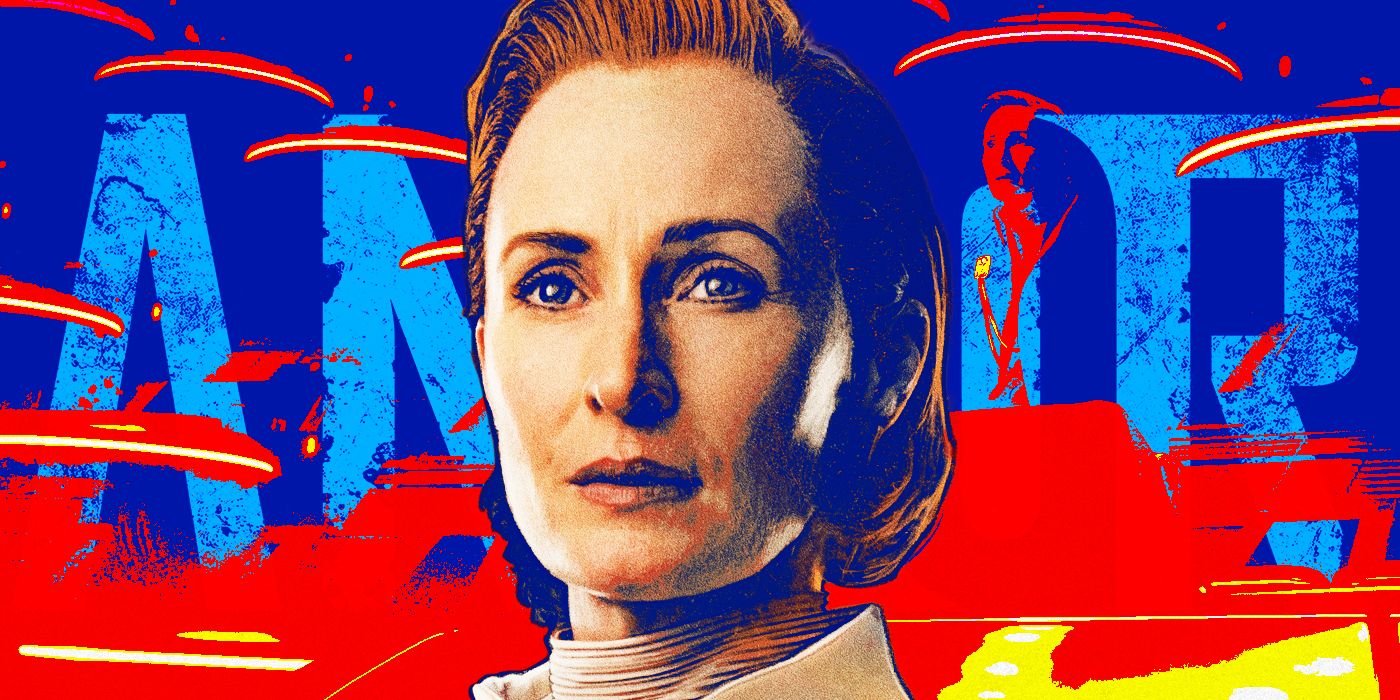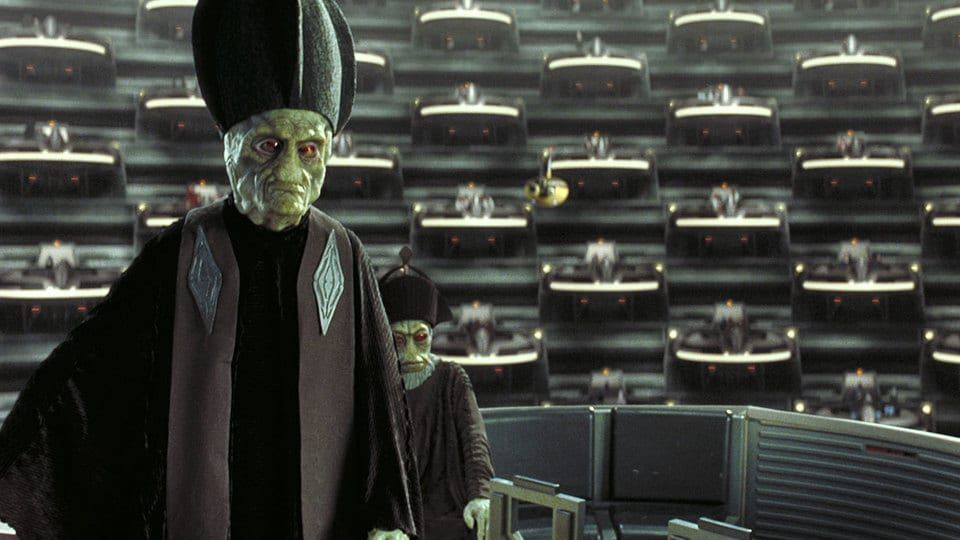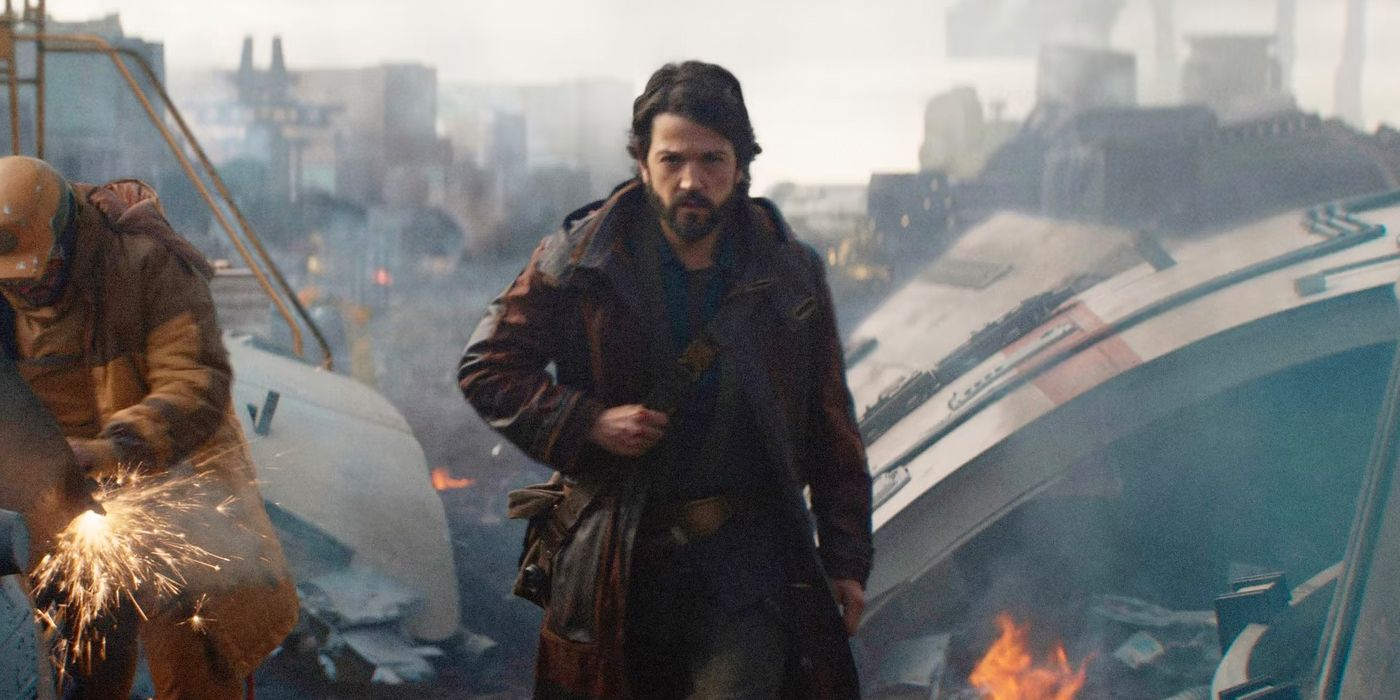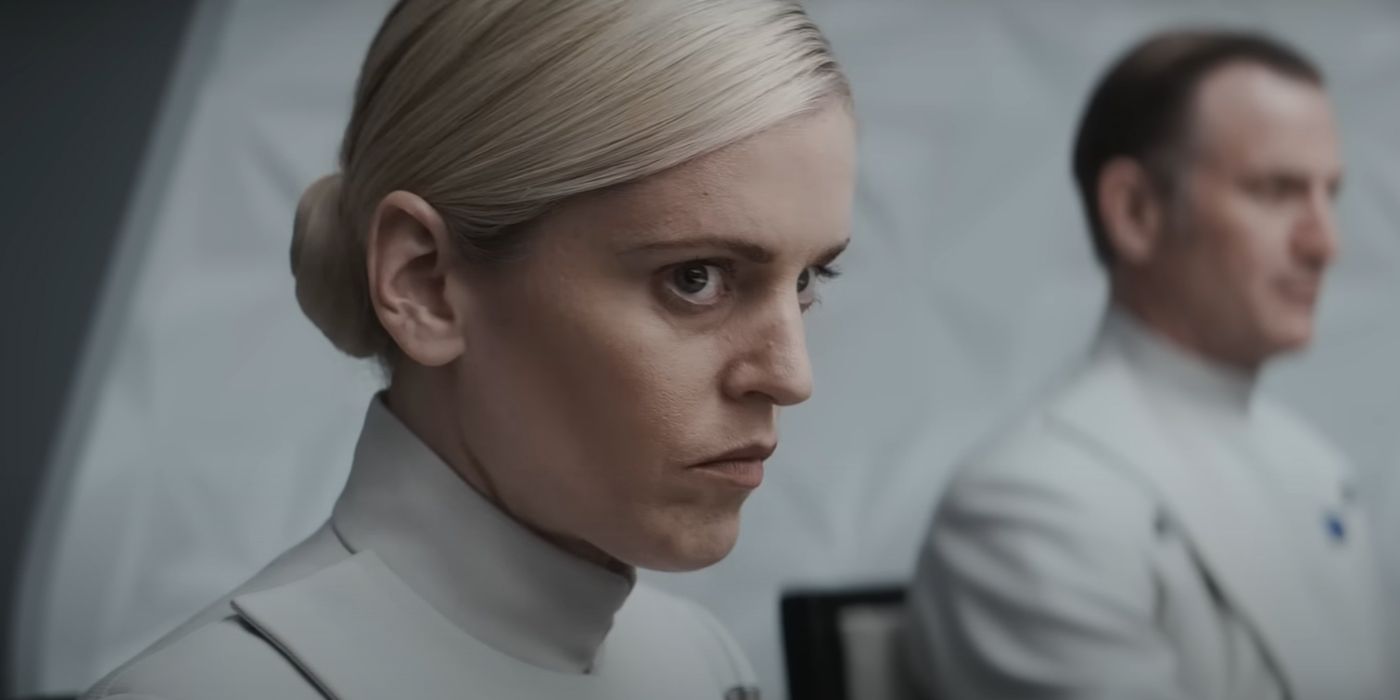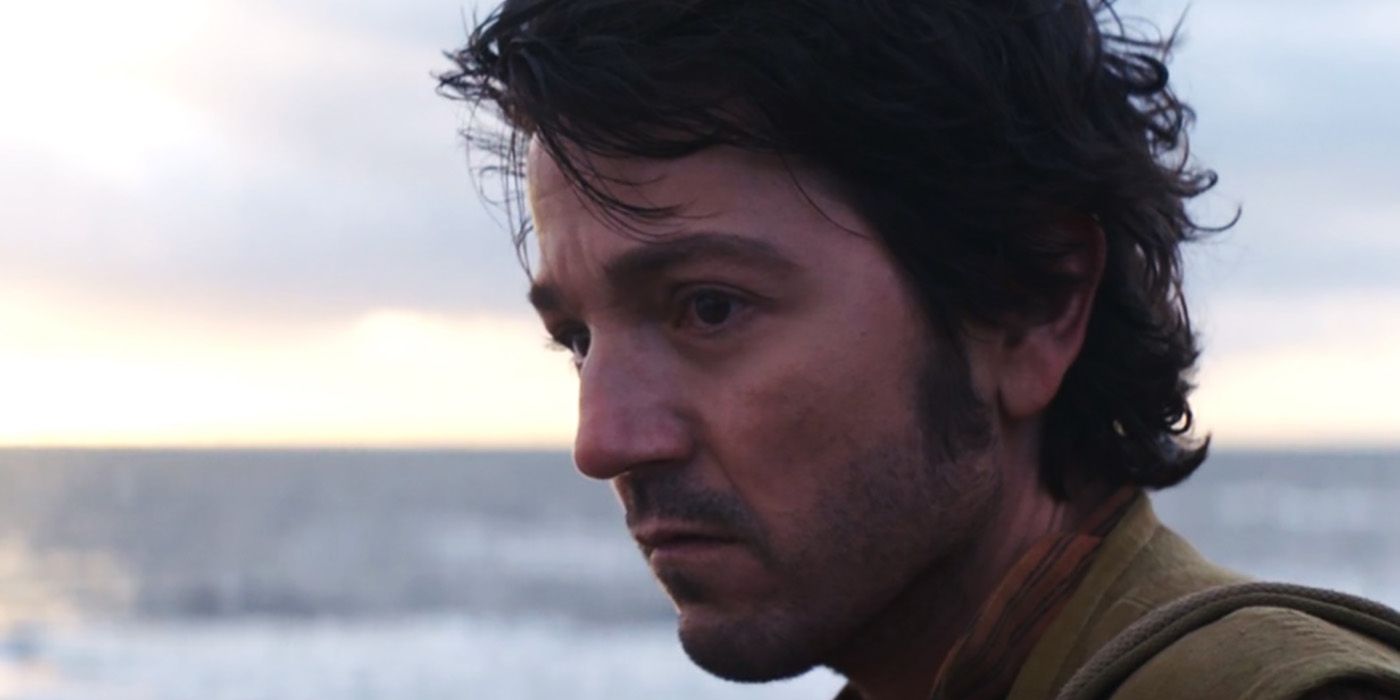Editor's note: The below contains spoilers for Season 1 of Andor.
Politics can be a useful tool in a universe-building franchise. Whether it is the Council of Elrond, the Ministry of Magic, or Westeros' Iron Throne, systems of governance often endow fictionalized worlds with greater detail, richness, and complexity. In Star Wars, however, politics have long been a bit of a taboo subject. Ever since the prequel trilogy met critical scrutiny for its dry presentation of trade federations, separatism, and treaty negotiations, most Star Wars installments have erred on the side of political simplicity.
Nevertheless, in a galaxy filled with various worlds, governments, cultures, and conflicts, politics were bound to come back in Star Wars eventually, and they finally did. Unlike the prequel trilogy, though, Season 1 of Andor weaves its politics into the narrative with due dignity, effectively redeeming the franchise as a whole.
The Prequel Trilogy's Politics Are Considered Tedious and Boring
The original Star Wars trilogy kept politics straightforward, with a clear Empire-verses-Rebels, good-verses-evil dichotomy leading the plot. Come 1999, however, The Phantom Menace established the prequel's political intricacies from its opening crawl, mentioning "taxation of trade routes," "a blockade" and "a greedy Trade Federation" all in the first paragraph. As opposed to the original trilogy's mythological simplicity, this preface came off as tedious and trite. Subsequently, the movie's abundant scenes of political discourse were convoluted, with monotone characters delivering seemingly half-baked speeches to an overall boring effect. Attack of the Clones offered more of the same on its political front, and even Revenge of the Sith, despite its abundant action, still saw some of its most tiresome sequences in the form of political conversations.
Given the prequels' relatively poor reception, Disney's modern Star Wars has largely strayed from politics. The sequel trilogy reverted to mythology; The Clone Wars and Rebels focused more on the characters in their cartoon worlds; and Solo, The Mandalorian, and The Book of Boba Fett all operated as space-Westerns, centering on the galaxy's more lawless corners. Even Rogue One was more of a war story than anything else.
'Andor' Takes More Risks With Politics and It Pays Off
For a while, it seemed as if Disney would forever keep its distance from Star Wars' politics, but with Andor, the franchise finally took some well-executed risks. As a somewhat more mature Star Wars show that strays from fantastical elements like Jedi, the Force, and the Skywalker family, Andor tells a story heavy in science-fiction, covert espionage, gritty warfare, and indeed, politics.
The show's first season shares Cassian Andor's (Diego Luna) heroic journey in tandem with political processes going on around the galaxy. While Andor embarks on his own character-driven quest, others plot the birth of the Rebellion. Unlike the prequels, though, this political plot is not delivered through wearisome dialogue. Sequences of Mon Mothma (Genevieve O'Reilly) and Luthen Rael (Stellan Skarsgård) showcase the sacrifice, turmoil, and life-threatening risks needed to stand up against the Empire. Even in the dialogue-heavy scenes, stakes remain high, for trusting the wrong people could cost these characters everything.
Meanwhile, the series also shows how not all Rebels share a political philosophy. The tense exchanges between Luthen and Saw Gerrera (Forest Whitaker) demonstrate this most acutely, as Saw upholds a stop-at-nothing mentality that could jeopardize Rael and Mothma's more deliberate approaches to Rebellion. Moreover, even when Mothma tries to garner support from her political allies on Coruscant, she constantly meets roadblocks. Each move carries consequential weight, and the deals offer glimpses into the customs and parlor that make up Star Wars' vast, tumultuous universe.
'Andor's Politics Focus on More Than Just the Rebellion
Andor's politics do not focus exclusively on the rise of the Rebellion, though. The show also illustrates the hierarchies within the Empire, with figures such as Dedra Meero (Denise Gough) and Syril Karn (Kyle Soller) navigating the Imperial Security Bureau to hunt Andor and bring a firm fist down on the budding Rebellion. Just as the Rebels have conflicting philosophies, Dedra and Syril often butt heads with other Imperial lieutenants, as their heavy-handed approach to order and action is not universally appreciated. While the Rebels risk life and limb to combat their oppressors, Dedra and Syril show how those operating within the Empire also play a precarious game, with competitive political ambitions abound.
Perhaps the main reason why Andor succeeds in its politics while the prequel trilogy failed is the series' emphasis on character. Saw Gerrera, Mon Mothma, Luthen Rael, Dedra Meero, and Syril Karn all feel fully fleshed out as opposed to the prequels' many one-dimensional diplomats. Even Emperor Palpatine (Ian McDiarmid) did not really blossom as a dynamic character until Episode III. By contrast, Andor maintains a human-centered narrative throughout. It establishes each of its characters as people before delving into their politics—not the other way around.
Another explanation for Andor's successful political portrayals comes from its ability to borrow from the original trilogy's moral simplicity. Audiences know that the Rebellion will rise in Andor, just as they knew the Republic would fall in the prequels. However, in Andor, the baseline threat of the tyrannical Empire is well-established, making it easy to comprehend the heroes' dire need for political action. In the prequels, the Separatists' threat to the Republic did not communicate quite as clearly. Not until the end of Episode II did the Clone Wars begin, and not until Episode III did the primary antagonist fully emerge. For most of the trilogy, things were tentatively peaceful, and if it weren't for the Jedi siding with the Republic, the good guys and the bad guys might've been difficult to identify altogether. Thus, when the prequel characters talked politics or advocated for change, it just didn't carry the same sense of urgency.
Cassian Andor's Story Plays Out Mostly Separate From Politics — At Least for Now
Lastly, Andor's politics may succeed because the show keeps its primary protagonist apart from the big-picture diplomacy. As aforementioned, Cassian's story runs adjacent to the political scene. While Andor occasionally intersects with the show's political bigwigs, he remains rogue for the most part. This ultimately allows the show to include politics alongside action and adventure without feeling overblown. At the same time, the dual narrative avoids minimizing the universe, for having Cassian directly involved with the higher-up politicians as well as the seedy front lines would feel implausible in a galaxy so large.
The parallel political and personal storylines also allow Andor to subtly depict the impact of politics. When Andor robs an Imperial base in Episode 6, the politicians respond with increased authoritarianism, which leads to Andor being wrongfully convicted and thrown into prison, just as overall sentences for those already incarcerated become infinite. Despite the separation between the two narratives, they share a connectedness that reflects the true nature of politics: how decisions made at the top can affect people at the bottom, even those who prefer to remain nonpartisan.
Given the ending of Andor's first season and the post-credit tag showing the construction of the Death Star, it is likely that the show's second season will continue to have a political plot line. However, the stakes will only grow higher as the story gets closer to the climactic events of Rogue One and A New Hope. Fans know where it is heading, and they are excited to see it get there. Perhaps just as excitingly, though, Andor has demonstrated that politics can surely occupy a riveting place in the Star Wars universe, optimistically opening the doors to more creative, intriguing, and ambitious stories to come.
The first season of Andor is now available to stream on Disney+.

